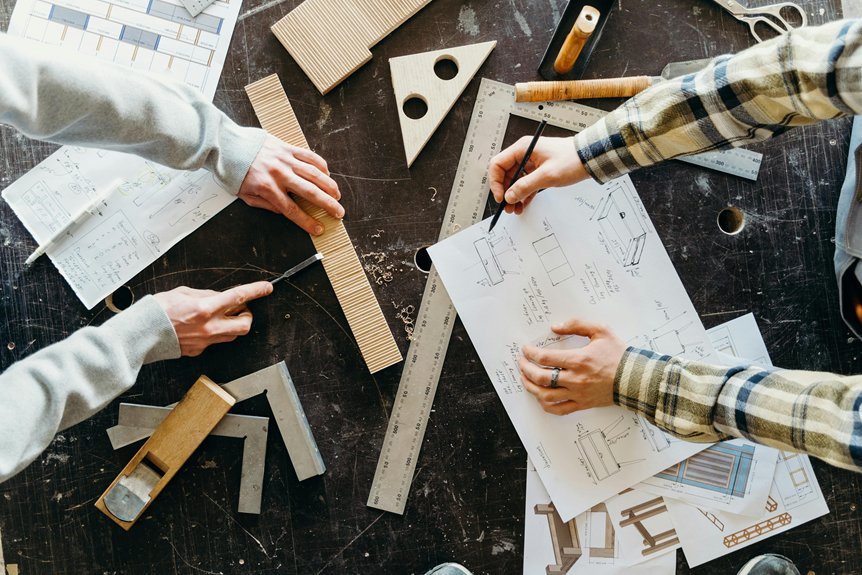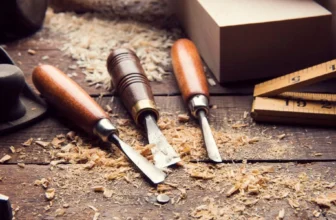
When you're starting with woodworking, having the right tools is essential for success. You'll need a handsaw for those straight cuts and a coping saw for more intricate work. Don't forget about a good set of chisels for precision. But what about measuring and marking tools? And how do hand planes fit into the picture? Let's explore the must-have tools that can make all the difference in your projects.
Essential Saws for Woodworking
When it comes to woodworking, having the right saws is crucial for achieving clean cuts and precise finishes.
Start with a handsaw, which is great for making straight cuts in various materials. A coping saw is essential for intricate curves and detailed work, allowing you to navigate tight spaces.
For more robust tasks, consider a Japanese saw, known for its pull-stroke design that offers greater control and accuracy. Additionally, a panel saw can handle larger sheets of wood efficiently.
Don't forget a miter saw for angled cuts; it's invaluable for frames and trim work.
Versatile Chisels and Their Uses
Although many woodworking projects can be completed with saws alone, versatile chisels are indispensable tools that can enhance your craft. They allow you to refine edges, carve intricate designs, and create joinery with precision.
Whether you're paring down a joint or creating a recess for a hinge, a good chisel gives you control and accuracy that saws simply can't provide.
Chisels come in various sizes and shapes, making them perfect for different tasks. You can use them for tasks like cleaning up mortises or trimming tenons, and they're great for hollowing out areas in wood.
Investing in a quality set of chisels will significantly expand your woodworking capabilities and improve the overall finish of your projects.
Measuring and Marking Tools
Accurate measurements and precise markings are the backbone of successful woodworking projects. To achieve this, you'll need essential measuring and marking tools.
Start with a reliable tape measure; it'll help you get accurate lengths and dimensions. A combination square is another must-have, allowing you to check and mark both 90-degree and 45-degree angles.
Don't forget a marking knife for clean, precise lines, and a carpenter's pencil for easy marking on various surfaces. A ruler or straightedge can also help you draw straight lines and check measurements.
With these tools in hand, you can ensure your cuts and joints fit perfectly, setting the stage for a successful woodworking project every time.
Hand Planes for Smooth Finishes
Hand planes are essential tools for achieving smooth, even finishes on your woodworking projects. They help you remove imperfections, flatten surfaces, and shape wood with precision.
When choosing a hand plane, consider the type you'll use most—block planes are great for end grain, while bench planes excel at flattening longer boards.
To get started, familiarize yourself with the parts of the plane and how to adjust the blade for depth and angle.
Practice using different techniques, like planing with the grain to avoid tear-out. Regularly sharpen your blade to maintain efficiency and achieve the best results.
With a good hand plane in your toolkit, you'll elevate the quality of your work and enjoy a smoother finishing process.
Conclusion
In summary, having the right basic hand tools is vital for your woodworking success. With essential saws, versatile chisels, accurate measuring and marking tools, and hand planes for that perfect finish, you'll be well-equipped to tackle any project. Investing in quality tools not only enhances your control and precision but also makes the woodworking process more enjoyable. So, gather these must-haves, and let your creativity shine in every piece you create!




